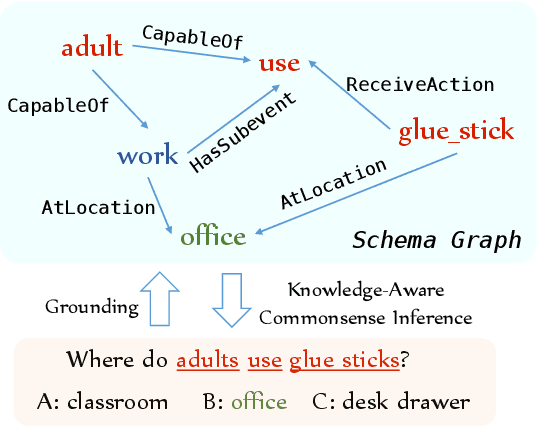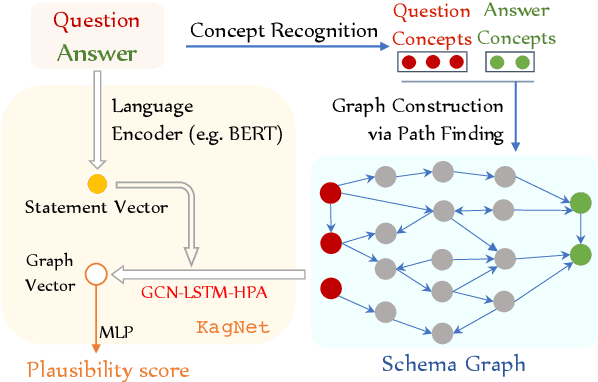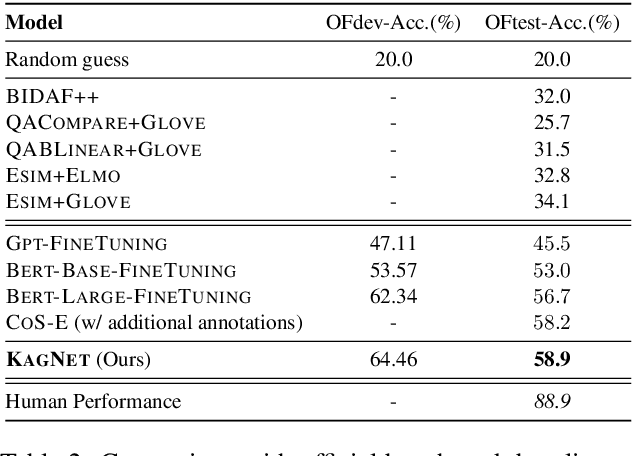KagNet: Knowledge-Aware Graph Networks for Commonsense Reasoning
Paper and Code
Sep 04, 2019



Commonsense reasoning aims to empower machines with the human ability to make presumptions about ordinary situations in our daily life. In this paper, we propose a textual inference framework for answering commonsense questions, which effectively utilizes external, structured commonsense knowledge graphs to perform explainable inferences. The framework first grounds a question-answer pair from the semantic space to the knowledge-based symbolic space as a schema graph, a related sub-graph of external knowledge graphs. It represents schema graphs with a novel knowledge-aware graph network module named KagNet, and finally scores answers with graph representations. Our model is based on graph convolutional networks and LSTMs, with a hierarchical path-based attention mechanism. The intermediate attention scores make it transparent and interpretable, which thus produce trustworthy inferences. Using ConceptNet as the only external resource for Bert-based models, we achieved state-of-the-art performance on the CommonsenseQA, a large-scale dataset for commonsense reasoning.
 Add to Chrome
Add to Chrome Add to Firefox
Add to Firefox Add to Edge
Add to Edge